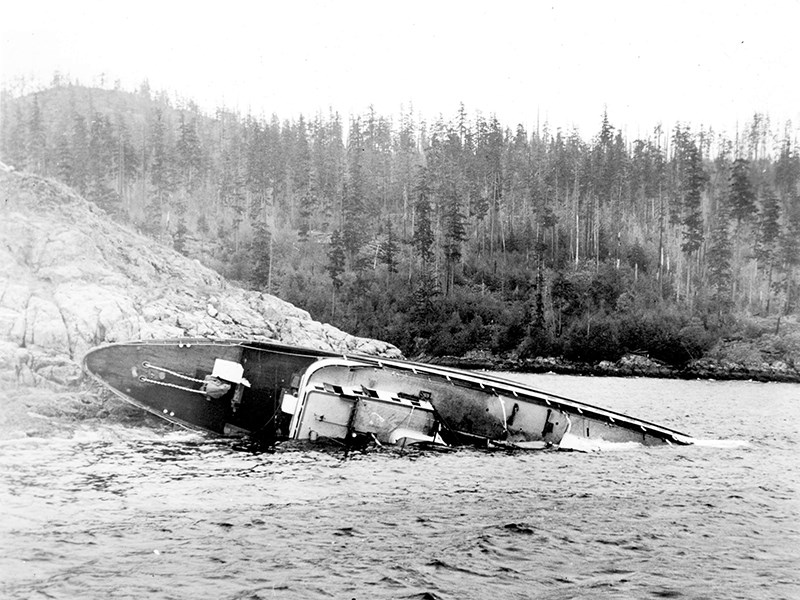On the first stormy days of the season, while others dream of sunny vacations, I like to go down to the beach and say hello to the coming winter. The first good storm always stirs something in me.
The power of the winter storms is something I love about this place. You feel the presence of the living world when you are right there with it, watching giant trees whip around and torrents of rainwater washing down the hillsides. A reminder that nature is a whole lot bigger and more powerful than we are is welcoming. Nothing reminds me of that more than a storm at sea.
Maybe it is partly because I grew up on the water around these parts. My dad’s family was from Bute Inlet, where winter storms are legendary. Even in the middle of summer a sudden wind can blow up and throw a big tug or fishing boat around like a toy.
I spent most of my young life around working boats and people who ran them. I learned to have a healthy respect for strong tides and bad weather and always be aware of what the wind is doing, like a constant companion at my side.
One of the stories told around our table as an illustration of this point was about the Gulf Stream. Run by Tidewater Shipping Company, it was one of a fleet of boats that carried passengers and freight up and down the coast before roads and car ferries were built.
On the night of October 11, 1947, the Gulf Stream was on its way north to Lund, its last stop of the night. During a blowing gale and hard rain, it somehow went off course after leaving Powell River.
Although the route and its hazards were well known, the crew lost their bearings in the darkness and, instead of going safely around Dinner Rock, the 100-tonne-plus ship slammed into it at full speed. Five of 36 people onboard did not make it out alive.
The bluffs above Dinner Rock are one of my favourite storm-watching spots. Every time I go there, I think about that ship. It is still down there somewhere, resting on the rocky bottom in more than 100 feet of angry-looking grey water.
I like to sit and feel the power of the wind and waves and just feel small for a while. No matter how fancy our technology becomes and how smart we think we are, we are never above the limits of nature.
That might seem like a cold lesson, but I find it strangely comforting. When we know what the limits are, we can work within them. Sometimes I worry that this culture is like a little kid without parents around. We act as though there are no boundaries to contain us and no rules we have to follow.
It is good to be reminded that things out there can sink our ship if we are not careful. Hopefully it makes us aware enough that we slow down before crashing into them.



